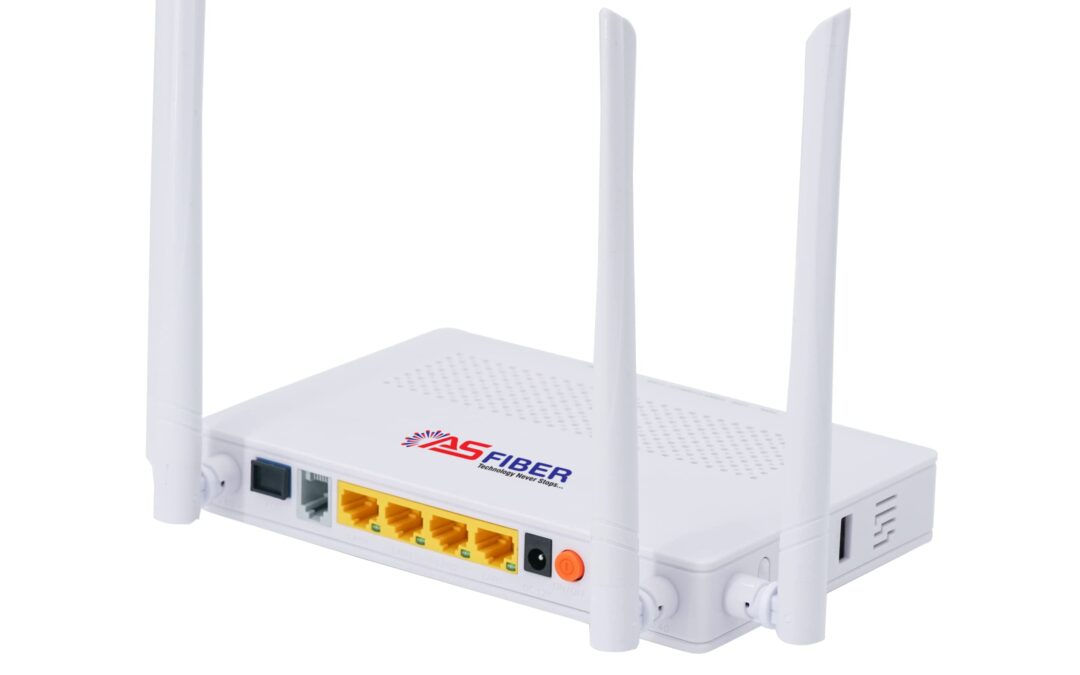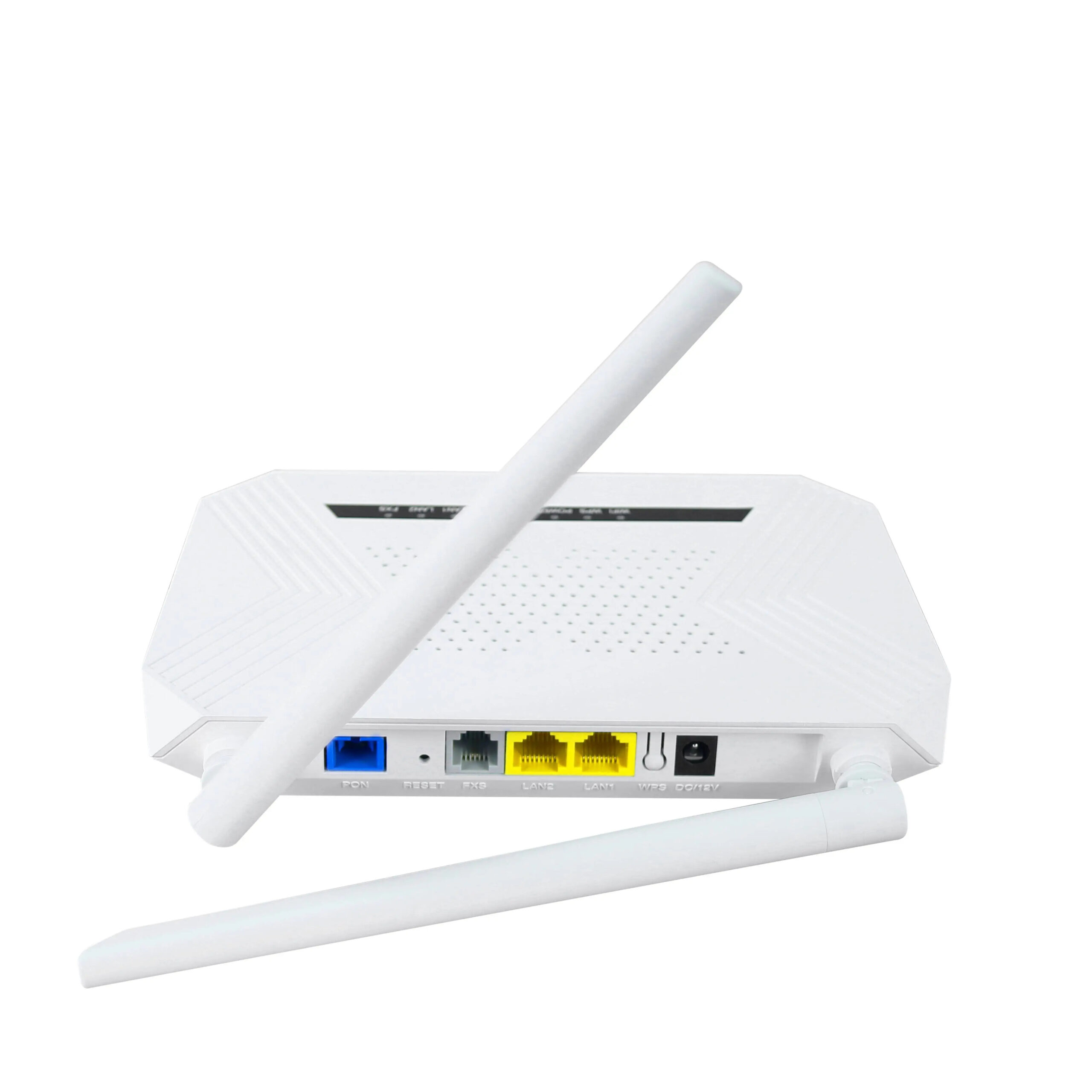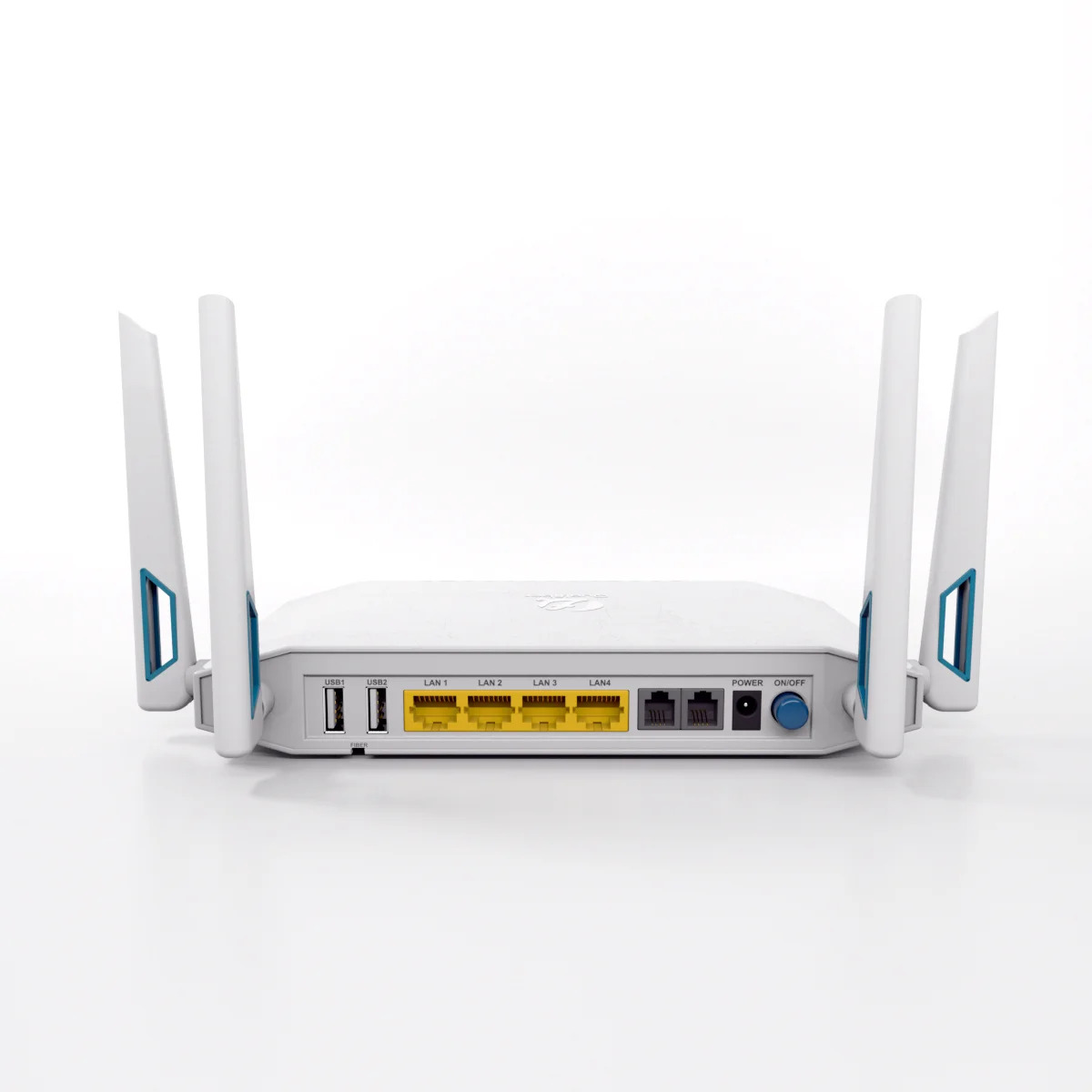When it comes to modern internet technology, staying connected efficiently is everything. That’s where the XPON router steps in. If you’ve ever wondered how your internet setup can handle high-speed connections while supporting multiple devices seamlessly, this device might just be the game-changer you need.
I’ve noticed people often get confused about XPON routers and how they differ from traditional ones. These routers combine the best of GPON and EPON technologies, making them a versatile solution for homes and businesses alike. Whether you’re streaming, gaming, or running a smart home, understanding XPON routers can help you make smarter internet choices.
What Is XPON Router?
An XPON router is a networking device that integrates GPON (Gigabit Passive Optical Network) and EPON (Ethernet Passive Optical Network) technologies. It supports dual-mode operation, enabling compatibility with both types of optical networks. This versatility ensures faster data transmission and broader connectivity.
Unlike traditional routers, XPON routers connect directly to fiber optic networks. They transmit data using optical signals, reducing latency and increasing bandwidth. For instance, XPON routers can handle speeds up to 10 Gbps, making them ideal for heavy internet usage.
XPON routers are suitable for diverse environments. Home users benefit from smoother streaming and gaming experiences, while businesses leverage their capacity for secure, high-speed connections. By combining dual technology, they deliver reliable performance in various network infrastructures.
How XPON Router Works
An XPON router operates by leveraging combined optical networking technologies to deliver high-speed, low-latency connections. It connects to fiber optic infrastructures, facilitating efficient data transmission for personal and professional use.
Key Components
The XPON router contains several essential components that enable its high-performance functionality:
- Optical Network Unit (ONU): Converts optical signals from the fiber network into digital signals for effective communication with connected devices.
- Dual-Mode Chipset: Supports both GPON and EPON protocols, ensuring compatibility across different optical networks.
- Ports for Connectivity: Includes Gigabit Ethernet ports, PON (Passive Optical Network) ports, and sometimes VoIP ports for diverse device connections.
- Firmware: Integrated software manages network configurations and optimizes data delivery for minimal latency.
Technology Behind XPON
- GPON Technology: Provides a high-speed downstream and upstream capability, delivering up to 2.5 Gbps downstream capacity.
- EPON Technology: Simplifies Ethernet-based network integration and supports symmetrical speeds, beneficial for large data uploads.
- Wavelength-Division Multiplexing: Utilizes multiple wavelengths on a single fiber to increase bandwidth without additional physical infrastructure.
- Dynamic Bandwidth Allocation (DBA): Optimizes bandwidth distribution across devices, ensuring minimal congestion and stable performance.
Benefits Of XPON Router
XPON routers integrate advanced optical networking technologies, offering significant advantages for modern internet users. Their dual-mode capability enhances connectivity across various environments, making them a versatile choice.
Faster Internet Speeds
XPON routers deliver internet speeds up to 10 Gbps. This high-speed capability stems from their use of GPON and EPON technologies, which optimize fiber optic connections for seamless data transmission. Whether streaming 4K videos or engaging in online gaming, users experience minimal buffering and lag.
Improved Network Efficiency
Dual-mode operation in XPON routers ensures efficient bandwidth usage. By utilizing dynamic bandwidth allocation and wavelength-division multiplexing, these devices distribute resources evenly across connected devices. This feature maintains stable performance for traffic-heavy activities such as video conferencing or cloud computing.
Cost-Effectiveness
Combining GPON and EPON technologies in one device reduces the need for multiple network equipment. XPON routers lower infrastructure costs for businesses and simplify network setups for homes. Their high durability and low maintenance requirements also contribute to long-term savings.
Limitations Of XPON Router
XPON routers offer numerous benefits, but certain limitations can impact their usage. Understanding these constraints helps make informed decisions about their implementation.
Compatibility Issues
XPON routers operate using both GPON and EPON technologies, but not all network providers support both standards. Some ISPs may only provide infrastructure for one type of optical technology, reducing the router’s dual-mode advantage. Additionally, existing network hardware or optical line terminals (OLTs) might lack compatibility, requiring upgrades or replacements to function seamlessly with an XPON router. Verifying network compatibility before installation minimizes potential conflicts.
Initial Setup Costs
While XPON routers reduce long-term operational expenses, the initial costs are higher compared to standard routers. Fiber optic infrastructure installation, including cabling and OLTs, significantly contributes to these costs. Businesses expanding networks may also encounter additional expenses, such as purchasing compatible accessories or employing professional installation services. These higher upfront investments can be prohibitive for smaller budgets despite future savings.
Applications Of XPON Routers
XPON routers enhance internet connectivity across diverse use cases, leveraging fiber optics for high-speed and reliable performance. Their dual-mode capability ensures broad compatibility and efficient data management.
Residential Use
XPON routers optimize internet usage for homes with multiple connected devices. They handle bandwidth-heavy activities like streaming 4K content, online gaming, and virtual reality applications without lag. Smart homes benefit from their stable connections, ensuring uninterrupted operation of IoT devices like security cameras, smart thermostats, and voice assistants.
Their high-speed capabilities also support remote work and online education requirements. With XPON technology, users can enjoy smooth video conferencing, quick downloads, and low-latency experiences regardless of the number of devices connected simultaneously.
Commercial And Enterprise Solutions
Businesses rely on XPON routers for robust, high-speed network performance. These devices are especially valuable for enterprises handling significant data traffic in activities such as cloud computing, cybersecurity operations, and large-scale data analysis. By reducing latency and maximizing bandwidth, XPON routers enhance productivity and ensure uninterrupted workflows.
For commercial environments, XPON routers support secure and scalable networks that accommodate future growth. Retail businesses use them to power point-of-sale systems and in-store WiFi, while corporations integrate them into their IT infrastructure for unified communications and reliable connectivity between branch locations. Their cost-efficiency and durability make them a practical choice for businesses seeking sustainable networking solutions.
Conclusion
Choosing the right router is crucial for keeping up with today’s internet demands, and XPON routers offer a unique blend of speed, reliability, and versatility. By combining GPON and EPON technologies, they provide a future-ready solution for homes and businesses alike. While there are some challenges to consider, the benefits of enhanced connectivity and cost-efficiency often outweigh the drawbacks. Investing in an XPON router could be the key to unlocking a seamless and powerful internet experience.
Frequently Asked Questions
What is an XPON router?
An XPON router is a dual-mode networking device that supports both GPON (Gigabit Passive Optical Network) and EPON (Ethernet Passive Optical Network) technologies. It connects to fiber optic networks to deliver high-speed, low-latency internet connections, making it ideal for homes and businesses.
What are the key benefits of an XPON router?
XPON routers offer internet speeds up to 10 Gbps, ensuring seamless streaming, gaming, and smart home operations. They improve efficiency with features like dynamic bandwidth allocation and provide cost savings by reducing the need for multiple network devices.
How does an XPON router work?
XPON routers use integrated optical technologies (GPON and EPON) to transmit data via fiber optic networks. With components like an Optical Network Unit (ONU) and dual-mode chipsets, they convert optical signals into digital data for faster, stable internet connections.
Are XPON routers better than traditional routers?
Yes, XPON routers outperform traditional ones due to their fiber optic compatibility, higher speeds, and lower latency. They handle heavy internet usage more efficiently, making them suitable for activities like streaming, gaming, and cloud computing.
Can XPON routers work with any internet service provider (ISP)?
No, not all ISPs support GPON and EPON technologies. It’s essential to check with your ISP to ensure compatibility before purchasing an XPON router.
Are XPON routers expensive to set up?
XPON routers may have higher initial setup costs due to fiber optic infrastructure installation and required accessories. However, their durability and long-term cost savings make them a worthwhile investment for most users.
What internet speeds can an XPON router provide?
XPON routers can deliver internet speeds of up to 10 Gbps, making them perfect for bandwidth-intensive tasks like 4K streaming, online gaming, and business operations.
Who should use an XPON router?
XPON routers are ideal for homes with multiple devices, gamers, and streamers, as well as businesses that require robust, high-speed internet for data-heavy tasks like cloud computing or video conferencing.
What are the limitations of XPON routers?
The main limitations include potential ISP incompatibility, higher upfront infrastructure costs, and the need for professional installation in some cases.
How do XPON routers enhance smart home connectivity?
XPON routers provide high-speed, low-latency connections, ensuring smooth operation of smart home devices. By optimizing bandwidth allocation, they handle multiple connected devices efficiently and support automation.
Are XPON routers future-proof?
Yes, XPON routers are designed to handle advanced fiber optic technologies, offering the scalability and performance needed for growing internet demands in both residential and commercial settings.



